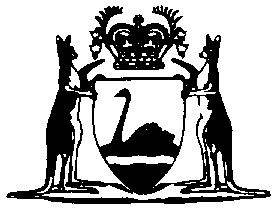EUROPEAN DEMOCRACY NECESSITATES POWERFUL EUROPEAN POLITICAL PARTIES THE CRISIS
0 EN EUROPEAN ECONOMIC AND SOCIAL COMMITTEE29 THE SCOPE FOR ACTION OF EUROPEAN PARLIAMENT
3 EUROPEAN ECONOMIC AND SOCIAL COMMITTEE SPEAKING
Е ВРОПЕЙСКИЙ ПРОЕКТ НПМ COUNCIL OF EUROPE EUROPEAN
EUROPEAN COURT OF HUMAN RIGHTS JUDGMENTS ON THE
EUROPEAN CURRICULUM VITAE FORMAT PERSONAL INFORMATION IEVA GRUNDSTEINE
The role of European political parties in bringing about a functioning European democracy
European democracy necessitates powerful European political parties
The crisis faced by the European Union at the time of its 50th anniversary is undoubtedly linked with its perceived democratic deficit. Shaking off the EU blues will require giving citizens a greater say on the EU’s agenda and the recognition by citizens of the EU as a legitimate power. European political parties are key to making this happen.
“Without parties expressing the political will of the citizens, there is no democracy! This holds good at all levels of political representation…and above all for the EU,” as European political parties’ presidents have long argued.
European political parties are different from the Groups in the European Parliament, which combine MEPs of one or more political affiliations, or possibly alliances between parties and independents.
So who are they and what is their role?
European political parties can be defined as a federation of national or regional parties from member states and aspiring EU countries, which are in agreement over their orientation and objectives and which are committed to permanent co-operation and to establishing a common political programme for European elections. They emerged in the 1960s and intensified their activities in the ’70s to prepare the first direct elections to the European Parliament. In the ’90s, European parties played a pivotal role in the modernisation of the political scene in Eastern Europe.
The ill-fated European Constitution states that the Union shall be based on the principle of representative democracy and that “political parties at European level contribute to forming European political awareness and to expressing the will of Union citizens” (Article 45). European parties were first acknowledged along similar lines in the Maastricht Treaty.
On 4 November 2003, the European Parliament and the Council approved a Regulation on the rules regarding the funding of political parties at European level, which marked a major development in the creation of a European political scene. According to this regulation, a political party at European level can apply for funding if:
It is represented, in at least one quarter of member states, in the European Parliament, national or regional Parliaments, or it must have received, at least 3% of the votes cast at the most recent European Parliament elections in at least one quarter of member states;
it observes the principles of liberty, democracy, respect for human rights and fundamental freedoms, and the rule of law, and;
it participated in elections to the European Parliament, or has expressed the intention of so doing.
With this regulation, all European political parties had to establish structures outside of and independent from the European Parliament’s political groups.
Veteran Eurosceptic MEP Jens-Peter Bonde, together with other Eurosceptic MEPs, including UKIP leader Nigel Farage, launched a case at the European court of Justice to annul this regulation, claiming that democratic life was and should remain organised at national level. The Front National launched a similar action, but both cases were dismissed as inadmissible. After losing their case, the Eurosceptics decided to make use of the money available for European political parties and created their own.
There are currently ten European political parties, with the three largest being the European People’s Party (EPP), the Party of European Socialists (PES) and the European Liberal Democrat and Reform (ELDR). The EPP gathers Christian Democratic and Conservative parties in Europe, including Angela Merkel’s CDU and Nicolas Sarkozy’s UMP. The PES groups the Social Democrats and Socialist parties of Europe, including Tony Blair’s Labour. The European Liberal Democrat and Reform (ELDR) party groups liberal democrats and centrists, very well represented in Northern Europe and including VLD the party of Belgian Prime Minister Guy Vehofstadt.
The other political parties existing at European level are: the European Free Alliance, the European Green Party, the Party of the European Left, the European Democratic Party, the Alliance of Independent Democrats in Europe, the Alliance for Europe of the Nations, and the EU Democrats. The last three parties are Eurosceptic.
Challenges facing a ‘European democracy’
European political parties mostly perform a networking and co-ordination role among their national party leaders. They are not yet able to structure the European public debate, which is still largely based on national lines.
Thomas Jansen, former EPP secretary-general, explains the relative weakness of the European political parties by the fact that “power in the Union does not derive from the European Parliament, but from national governments who owe their legitimacy and power to national parliaments”.
Indeed, serious adjustments must be made for citizens to become aware of European political parties. National parties will have to allow European parties to gain greater stature and thus more input into the policies of a national member party. They will need to realise that the game is worth the candle.
Political parties, at national and European level, are crucial in representing the people and aggregating interests and aspirations within society and translating them into political programmes. European political parties are widely expected to contribute to the creation of a European public space and to structure the public debate before the EU takes its major decisions. They are seen as key element in the linking of public opinion with the actions of the European institutions, by becoming active proponents of European policy options. It is indeed vital for the emergence of a true European democracy that European leaders trigger a debate on key EU issues in their countries; one that will also cross borders and nurture the sense of a ‘European public’.
The Services Directive provided a good example for such a European-scale public debate, with liberals passionately fighting in favour of the liberalization of services in Europe and trade unions and Communist parties largely rejecting it.
In his article ‘European democracy: Where now?’ Aurore Wanlin, researcher for the London-based Centre for European Reform (CER), argues that “the lesson of France and the Netherlands is that lack of democratic dialogue on a European Union-wide level is a damaging hole at the heart of the European project”.
The way forward for Europe’s democratisation implies greater politicisation of the European debate, with each European political family presenting a clear political direction to voters and putting forward a candidate for the post of Commission president in the European elections in 2009. The disenchantment of Europe’s citizens cannot be fought without political choice and leadership.
Myriam Cornillet
(OPIS W JĘZYKU ZAJĘĆ) MODULE NAME EUROPEAN UNION INTELLECTUAL
0150781 TOYOTA MOTOR EUROPEAN (TME) SUSTAINABLE LOGISTICS AN EXAMPLE
1 GRUPO «EUROPEAN 112 DAY 2016» ACTIVIDAD 112 EXTREMADURAUNIVERSIDAD
Tags: european democracy, the european, european, parties, necessitates, crisis, democracy, powerful, political
- PLAN DE GESTIÓN PARA LA ZONA ANTÁRTICA ESPECIALMENTE PROTEGIDA
- CURSO DE HTML 1 INTRODUCCIÓN LA INTENCIÓN INICIAL DE
- SCTS25 ADD PAGE 2 OMPI F SCTS25 ADD ORIGINAL
- KUPNÍ SMLOUVA UZAVŘENÁ PODLE § 2079 A NÁSL ZÁKONA
- COMPOSITES ISSUES TO ADDRESS WHAT ARE
- INFORMATĪVAIS ZIŅOJUMS “LATVIJAS ATVĒRTO DATU STRATĒĢIJA” SATURS IEVADS 3
- ARTE ROMANO ARA PACIS ES DE PEQUEÑAS DIMENSIONES FORMA
- PATRONES DE CONTROL PRENATAL DE RUTINA PARA EMBARAZOS DE
- UNEPLACIGWGXII2 PÁGINA 0 INFORME DE LA SECRETARÍA AL FORO
- GEOGRAPHIE UND WIRTSCHAFTSKUNDE LP OBERSTUFE SEITE 6 GEOGRAPHIE UND
- CI 701—ASSIGNMENT 7B TECHNOLOGY AND RETICULATION LEE ANN HVIZDAK
- CHAPTER 17 MORE PRACTICE WITH THE GENETIC CODE
- NAME PHYSICS PERIOD DATE SPEAKER LAB
- CHARLES FBRUSH INTERNSHIP RESPONSIBILITIES FOR THE SALON AT THE
- RENAUD GARCIAFONS & DORANTES DORANTES PIANO RENAUD GARCIAFONS CONTREBASSE
- PLIEGO DE CLÁUSULAS ADMINISTRATIVAS PARTICULARES PARA LA ADJUDICACIÓN POR
- THE MOST IMPORTANT ANGLOSAXON AND HUNGARIAN STAGE PRODUCTIONS AND
- SHELTER COORDINATION WORKING GROUP MEETING MOM – TUESDAY 16
- PŘÍBALOVÁ INFORMACE DAPRIL 5 DAPRIL 10
- 15 FORMIGÓ PREDIMENSIONAMENT DE SECCIONS FORMIGÓ PREDIMENSIONAMENT DE SECCIONS
- SERGIO MARCELO ARCIÉNAGA MORALES ID UD58247HED67257 PROGRAMA DE DOCTORADO
- 1 NE POSTOJI BOLJI NACIN DA SE OPUSTITE OD
- UNIT 2FOH310 (F964 04) DEALING WITH BOOKINGS THIS UNIT
- 5 COUNCIL FOR MEDICAL SCHEMES APPEALS COMMITTEE (CENTURION) IN
- SECTION 113 REVIEW ANSWERS (PAGE 475 16) 1 WHEN
- LINEAMIENTOS DE PEDAGOGIA PARA LA FORMACIÓN COMUNAL I ANÁLISIS
- CHAPTER 3 SITE PERFORMANCE OBJECTIVES 31 GENERAL PROJECT SITES
- AYUDA ESTANCIAS BIOCRUCES BIZKAIA 2021 ANEXO IV NOTIFICACIÓN DATOS
- KALENDAR TAKMIČENJA ATLETSKOG SAVEZA BEOGRADA ZA 2016 GODINU JANUAR
- GENESIS (A CONDENSED SET OF INSTRUCTIONS TO GRADEBOOK) WEIGHTED
 EATING AND DRINKING IN LABOUR GUIDELINES DOCUMENT TYPE CLINICAL
EATING AND DRINKING IN LABOUR GUIDELINES DOCUMENT TYPE CLINICALCATERINA BASSO CATERINA BASSO IS A DANCER AND CHOREOGRAPHER
THE TREATMENT OF THE INFORMAL SECTOR SUMMARY CONCLUSION
 PROGRAMA ¡ORDAGO! SOLICITUD DE MATERIAL CURSO 20212022 CENTRO DIRECCIÓN
PROGRAMA ¡ORDAGO! SOLICITUD DE MATERIAL CURSO 20212022 CENTRO DIRECCIÓN PRUEBAS DE ACCESO SEPTIEMBRE 2014 CRITERIOS DE CORRECCIÓN PRUEBAS
PRUEBAS DE ACCESO SEPTIEMBRE 2014 CRITERIOS DE CORRECCIÓN PRUEBAS FAMILY COURT OF WESTERN AUSTRALIA FORM NP6 CONCILIATION CONFERENCE
FAMILY COURT OF WESTERN AUSTRALIA FORM NP6 CONCILIATION CONFERENCE GRADO EN FARMACIA PRÁCTICAS EXTERNAS FACULTAD DE FARMACIA SOLICITUD
GRADO EN FARMACIA PRÁCTICAS EXTERNAS FACULTAD DE FARMACIA SOLICITUDFISHBANE REACTION AFTER 1991 WHEN IRON DEXTRAN BECAME STANDARD
PRIMĂRIA COMUNEI FELEACU JUDETUL CLUJ ADRESA STR PRINCIPALĂ NR
ANNEXE 1 DOCUMENTS APPROVED BY THE LONDON BOROUGH OF
 LA TERMINOLOGÍA DEFINICIÓN FUNCIONES Y APLICACIONES ISABEL SANTAMARÍA PÉREZ
LA TERMINOLOGÍA DEFINICIÓN FUNCIONES Y APLICACIONES ISABEL SANTAMARÍA PÉREZ TCEDCJAN121 PAGE 2 E TCEDCJAN1325 ORIGINAL ENGLISH DATE NOVEMBER
TCEDCJAN121 PAGE 2 E TCEDCJAN1325 ORIGINAL ENGLISH DATE NOVEMBER SLOVENIJA ZNIŽUJE CO2 DOBRE PRAKSE ČADRG INFORMATIVNI LIST PODROČJE
SLOVENIJA ZNIŽUJE CO2 DOBRE PRAKSE ČADRG INFORMATIVNI LIST PODROČJETABELA 1 PREGLED DELA IN DOSEŽENEGA ŠTEVILA TOČK NAZIV
 MINISTERIO DE EDUCACIÓN UNIVERSIDAD TECNOLÓGICA NACIONAL FACULTAD REGIONAL RECONQUISTA
MINISTERIO DE EDUCACIÓN UNIVERSIDAD TECNOLÓGICA NACIONAL FACULTAD REGIONAL RECONQUISTAPRIVACY THIRD PARTIES AND JUDICIAL METHOD WAINWRIGHT’S LEGACY OF
INSTRUCCIONES FORMULARIO 1855 DECLARACIÓN JURADA ANUAL SOBRE OPERACIONES DE
 N OTA DE PREMSA SM EL REI PRESIDEIX EL
N OTA DE PREMSA SM EL REI PRESIDEIX EL JENISJENIS STRATEGI PENYELESAIAN SOAL A GUESS AND TEST
JENISJENIS STRATEGI PENYELESAIAN SOAL A GUESS AND TEST  CÔNICAS UM EXCELENTE ELO CAPAZ DE MOSTRAR AS CONEXÕES
CÔNICAS UM EXCELENTE ELO CAPAZ DE MOSTRAR AS CONEXÕES